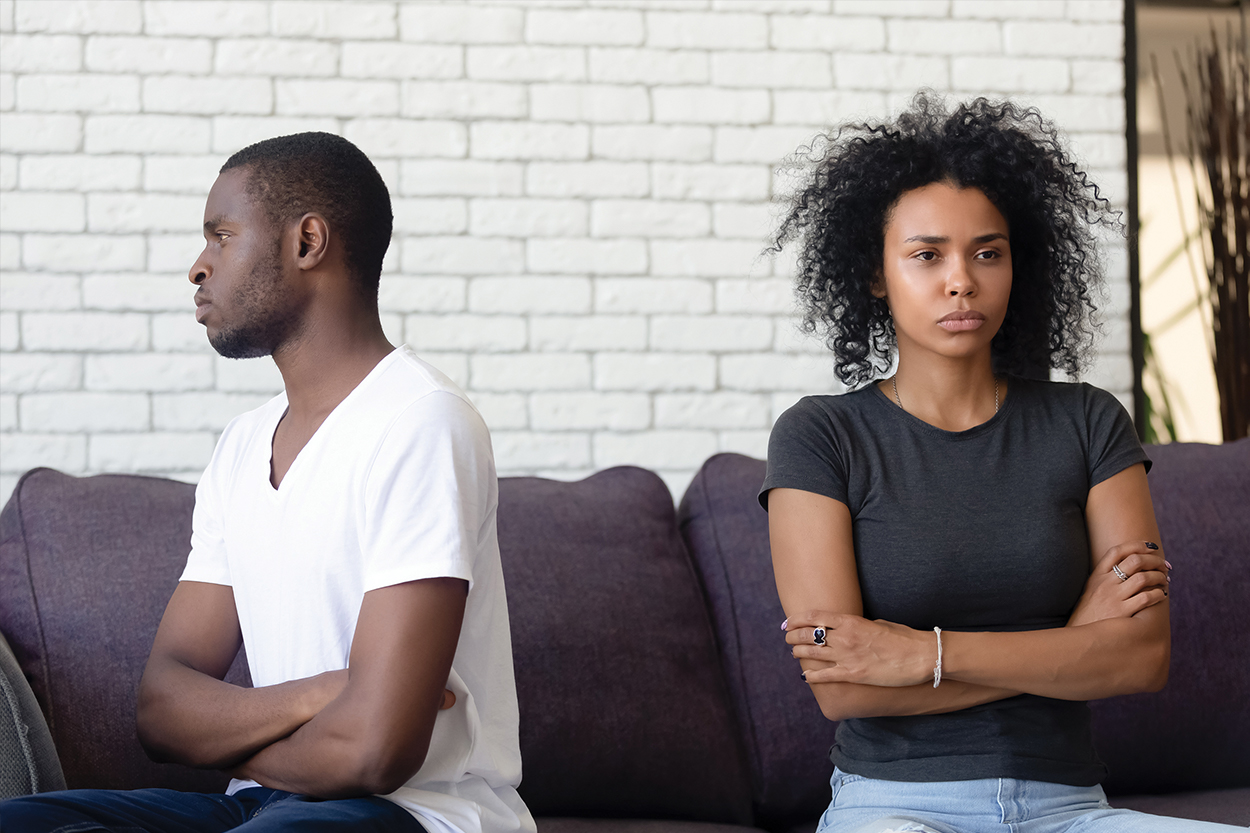Separation anxiety in relationships is common among those who have a separation anxiety disorder. Separation anxiety is the fear of losing or going away from your loved ones who used to show love to you by hitting pick up lines and others. Not many know about this disorder nor how to deal with separation anxiety in relationships.
What Is Separation Anxiety?
Separation anxiety means when someone is afraid of losing their loved ones, which is the source of happiness and safety. It is a juvenile disorder, especially seen among children when they are separated from their mother or their primary source of care and comfort. It is common to feel lonely and alone in the absence of your loved ones but people with separation anxiety are more clingy.
A large number of people who developed separation anxiety in childhood have become diagnosed with Adult Separation Anxiety Disorder (ASAD). People with separation anxiety disorder eventually impact this behaviour in their future romantic relationships as well.
When we are in a relationship with someone, we connect with our partner and they become our source of safety and love. We share our vulnerable side and develop trust with our partners. A person with a separation anxiety relationship starts to develop a fear of losing their partner in a more aggravated form compared to other people.
Causes of Separation Anxiety
There is no single cause for separation anxiety. Many feel that it is because of the emotional sensitivity within them that grows or aggravates such emotions with time. People with feelings of separation anxiety think that they should just learn how to deal with separation anxiety without even understanding what actually caused it.
Family History: Just like we inherit the physical appearances from our family, we also inherit some of their emotional traits. If you have a family member or other blood relatives with separation anxiety, we could inherit it.
Biological factors: When our key neurotransmitters – serotonin and dopamine aren’t functioning properly, can cause these feelings of anxiety. These neurotransmitters play a huge role in the way a person experiences emotions and feelings.
Life Experiences: Negative life experiences can contribute to separation anxiety. A harsh breakup, loss of loved ones, injury of your loved ones, injury or loss of your pet, divorce of parents, loss of friends after they moved to college, moving away from home to study at a university, and so on.
Environmental factors: Losing family in a disaster or some sort of negative experience around you makes you feel anxious or in danger.
Anxiety Disorders: If you are already diagnosed with another anxiety disorder like social anxiety, then there are chances you experience separation anxiety as well.
Signs of Separation Anxiety
You might have experienced or even seen children crying on the very first day of school. This is because they fear losing their mother or guardian. Similarly, when you leave home to study in a university far away, you experience mild anxiety leaving your family and your comfort zone. Such emotions are very common, however, people with separation anxiety feel a stronger rush of these emotions compared to other people.
- To know how to overcome separation anxiety, one must be aware of the signs or symptoms of separation anxiety.
- Physical Symptoms: For some people, separation anxiety can cause bodily experiences like feeling nauseous (vomiting tendency), feeling difficulty in breathing, rapid heartbeat, stomach aches, tingling in the limbs, or fatigue.
- Emotional Symptoms: Separation anxiety can cause changes in our emotions like – mood swings, sadness, anger, lower concentration, clouded decision-making, feeling fearful and worried.
- Behavioural Symptoms: Separation anxiety also causes behavioural or functional symptoms like – avoiding spending time alone, feeling embarrassed to go out on events alone, repeated nightmares, reluctance to apply for a new job, even turning to substances.
People often get negative thoughts and feelings like “what if my partner leaves me?”, “what if I am asked to stay late at work?” or even something like “what if someone attacks me?”. They lack the confidence to travel alone, make new friends or move on from a prior relationship and involve themselves in a new relationship.
Coping With Separation Anxiety in Relationships
Separation anxiety from a boyfriend or separation anxiety from a girlfriend can have a very negative impact on your relationship.
- Recognise the signs: Research and try to understand the symptoms and signs of separation anxiety. Only when you are self-aware of yourself, will you be able to improve and change for the better.
- Admit and accept: Just being aware isn’t enough. Accept and acknowledge your deep fear of letting anyone go because only then can you become clear about your next plan of action to overcome this excessive fear.
- Communicate with your partner: If you want to overcome separation anxiety in your relationship, you need to communicate with your partner to combat separation anxiety in a relationship because it will impact your partner as well.
- Observe other healthy relationships: Try observing other healthy relationships so that you can educate yourself, and try implementing the same with your romantic partner. Understand that separation is temporary.
- Engage in activities that make you happy or make you lose track of time: When you are involved in doing any activity that makes you happy or busy, then the fear can eventually be “forgotten” or it can “subside”.
- Be mindful of your own capabilities: Trust yourself and keep your mind and body active in some activities.
- Focus on self-care or self-development: Try to make yourself busy with activities that will develop your personality. Let out the fear hidden within you and that will change you physically and mentally into a stronger person. Mental exercises like Yoga and Meditation will help you relax your mind.
- Spend time with other important people in your life: Shift your focus a little to other people who cherish like your family member or any friends.
- Seek medical help: There is no shame in seeking medical help if you are unable to deal with your anxiety alone. Seek professional help or therapy.
- Plan something special with your partner after they return: When you have something to look forward to you feel less anxious. Also, you will be looking forward to something positive which will cut out the negative emotions.
Recommended Reads
Conclusion
Separation anxiety in a relationship can hinder your companionship with your partner. It is crucial you recognize and develop positive habits to overcome this excessive fear of losing your loved ones. Battling with a disorder is difficult and being with a person who accepts you and helps you combat is crucial. Communicate with your partner and together you can overcome this disorder.
FAQs
How separation anxiety impacts adult relationships?
Separation anxiety in couples can cause tension in a relationship. Separation anxiety from partners may make them feel extremely insecure, jealous, and have panic attacks.
Could I have separation anxiety?
Yes, anyone can! If you refuse to be away from home, are uncomfortable staying home when no one’s around, or avoid sleeping alone, then you cul have separation anxiety too.
At what life stage may a person experience separation anxiety?
Separation anxiety typically occurs from childhood from between 18 months to 3 years. It can increase in teenage years and adult life.



